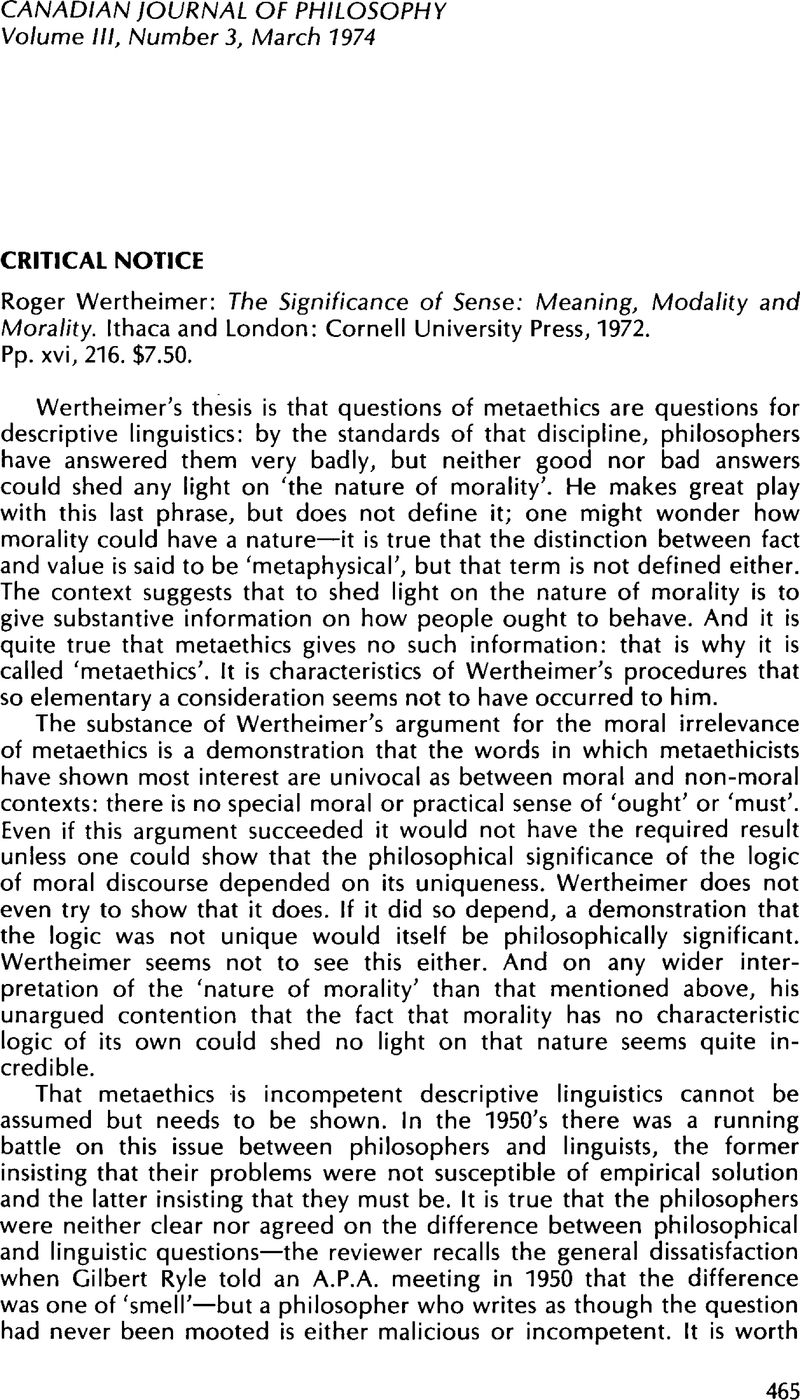No CrossRef data available.
Article contents
Roger Wertheimer: The Significance of Sense: Meaning, Modality and Morality. Ithaca and London: Cornell University Press, 1972. Pp. xvi, 216. $7.50.
Review products
Published online by Cambridge University Press: 01 January 2020
Abstract

- Type
- Critical Notice
- Information
- Copyright
- Copyright © The Authors 1974
References
1 Wertheimer's treatment of Hare is strange. On p. 22 he purports to locate ‘three propositions’ ‘at the very heart of Hare's theory’:
‘(!) “No imperative conclusion can be validly drawn from a set of premises which does not contain at least one imperative.”
(!!) Value judgments … entail an imperative ….
(!!!) Value judgments are not imperatives; they are indicatives.’
We note that only the first of these is actually a quotation from Hare. Wertheimer says ‘it is supposed to be a linguistic principle a violation of which is a commission of the naturalistic fallacy,’ and says it contains ‘syntactical notions.’ This is absurd: a violation of syntax is a solecism, not a fallacy. The third ‘proposition’ is supported only by reference to the opening pages of The Language of Morals, where Hare has not yet developed his phrastic/neustic logic. The second ‘proposition’ is a travesty of what Wertheimer himself recognizes to be a logic of illocutions. The attempt to generate an appearance of contradiction is merely puerile. Wertheimer has to pretend that Hare ‘leaves his reader to assume that he is consistently referring to kinds of grammatical moods’. A reader who would assume that would assume anything.
2 A weird excursus on Kant centres around this point. The rigidity of Kant's moral position puts Wertheimer in mind of the fourth of six phases through which Piaget and his followers have established that children pass. Kant is therefore childish and it is disgraceful to admire him. Only ‘stage four personalities’ are interested in his arguments, which ‘sophisticated commentators’ find so far beneath them as to be incomprehensible. Realising that the belief that Kant is a thinker of stature is held by many educated adults, Wertheimer vindicates his position by saying that Piaget is right to assume that his conception of reality is ‘superior to those of primitive people and children’ (p. 148). No doubt. But Kant at the relevant date was neither a child nor a primitive person. So perhaps those who wish to debunk Kant are better advised to examine his arguments after all.




